 |
| photo: H. Ostler |
Jeffery Paine holds a Ph.D. in cross-cultural intellectual history from Princeton University and has taught at Princeton and other universities. He has served as the literary editor of the Smithsonian's Wilson Quarterly
and as a judge of the Pulitzer Prize. In his newest book, Enlightenment Town: Finding Spiritual Awakening in a Most Improbable Place
(New World Library, May 20, 2018), he offers a witty, in-depth exploration of "the Shambhala of the Rockies"--the tiny mountain town Crestone, Colo.--and its spiritual inhabitants.
On your nightstand now:
I have no nightstand. However, the floor around my bed is so littered with books temporarily shipwrecked in mid-reading it's a nightly miracle that, when I wake up to urinate, I don't trip.
Among these, the most unlikely (for me) are those about quantum mechanics and relativity. I devour them, though understanding only a fraction, because they and the Tibetan Buddhism I sometimes write about dovetail so incredibly. Contemporary physics makes the wild visions of Tibetan Buddhism plausible; Tibetan Buddhism gives the abstractions of physics a human resonance. Together they help answer what Einstein said was the last great question facing physics--"Is the Universe friendly?"--and answer it in the loveliest way.
Specifically, for physics reading: Reality Is Not What It Seems by Carlo Rovelli. And for Tibetan reading: Drinking the Mountain Stream by Milarepa.
Favorite book when you were a child:
Well, that childhood transpired in rural East Texas, where adorable Eeyore-able donkeys and cuddly Pooh bears searching for pots of honey never came sallying by. Instead, on that children's book thrill-o-meter, what registered most delight was the Bobbsey Twins series. Especially when the hard-of-hearing aunt would mishear something--say, "I'd like a drink" as "the bike's in the sink!" Funny, funny, funny--take a giggling three-year-old's laughter as testimony.
Your top five authors:
W.B. Yeats, Shakespeare, Henry James, Plutarch and Barbara Pym.
Book you've faked reading:
I faked reading a book that, to my embarrassment, did not exist. As college freshmen, we were sitting around naming our favorite authors. (Common answers back there would have been John Steinbeck and Albert Camus.) I had read in Life magazine's The World's Great Religions some wonderful sayings by the 19th-century Indian saint or "godhead" Sri Ramakrishna. Never short of pretentiousness, I pronounced Ramakrishna to be my favorite author. It may not have been the most intelligent answer. For Ramakrishna, I later learned, was entirely illiterate and never wrote a word.
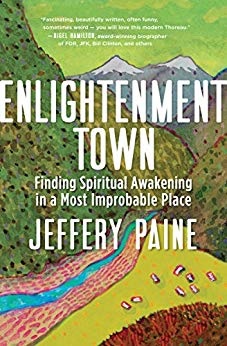 Book you're an evangelist for:
Book you're an evangelist for:
Dearly Beloved Reader, if ever I am an evangelist for anything, take me out and shoot me. Of course, like everyone I make heartfelt book recommendations, but on a one-on-one personal basis, not so much books that I enjoyed or needed, but ones the particular individual I'm talking to might need or enjoy.
Okay, take me out and shoot me, for I'm about to evangelize. Thich Nhat Hanh's The Heart of the Buddha's Teachings and Anam Thubten's The Magic of Awareness extract Buddhist insights from their original context and make their helpfulness available to anyone--atheists, too. They open at this late day a new window on personhood, and not only a window, they open the doors and walls and roof, vast light streaming in.
Book you've bought for the cover:
I actually bought it because of the blurb on the cover. At a quick glance I thought the cover quote was from Colin Thubron, whose writing I respect, but in fact it was by Colin Wilson, whom I'm less sure of. If I'd realized it was Wilson not Thubron, I wouldn't have bought the book, and thus have deprived myself of reading possibly the best travel book on India, Paul William Roberts's Empire of the Soul.
Book you hid from your parents:
Probably copies of the same books they were hiding from me--e.g., Peyton Place or Harold Robbins--though we were mainly amused by each other's literary hide-and-seek.
Book that changed your life:
Two authors with two books each influenced the boy turning into man: Rainer Maria Rilke's Duino Elegies and his Letters, and William Butler Yeats's poetry and his autobiography. They showed a know-nothing kid from Goose Creek, Tex., that life could be lived creatively and nobly, and how deep, rich and adventuresome it was even to try.
Favorite line from a book:
The line I have quoted most in my life: "The test of a first-rate intelligence is the ability to hold two opposed ideas in mind at the same time and still retain the ability to function." --F. Scott Fitzgerald, from The Crack-up.
Runner-up: Bertolt Brecht's refrain from "Von der Kindsmörderin, Marie Farrar":
"But you, I beg you, check your wrath and scorn/ For man needs help from every creature born."
Five books you'll never part with:
Never?!? A grisly, gruesome image forms in my mind. The gravediggers are trying to coerce my corpse into the grave, but my corpse keeps yelling, "Not unless I can take these five books with me!"
For five books not to be parted with now, I might choose autographed ones, for someday they might be worth something and I'll likely need the cash. Three of them are signed by Nobel Prize winners (Günter Grass, Orhan Pamuk and Kenzaburō Ōe). A fourth could be The Optimist's Daughter by that dearest and shrewdest of American writers, Eudora Welty. And a fifth, Self-Consciousness by John Updike, whom I liked for--it was so companionable--how he made literature out of contemporary issues and tensions and as well explored what was happening in writing all around the world.
Book you most want to read again for the first time:
A toss-up, a tie:
(1) Peter Freuchen's Book of the Eskimos: never was hardship happier or more heroic; never were a remote people more fascinating; and reading him, a strong but energizing Arctic wind blew through my staid existence.
(2) The novels and stories of Isaac Bashevis Singer: for how he re-created, both from the inside and the outside, a doomed, magical, larger-than-life world of lost Judaism. Singer's work offers a great banquet for the heart/mind--call it a wedding banquet--where radiant wonder marries tragic history, and every manner of guest (character) is in attendance.
Book you would recommend for understanding the predicament in which the U.S. now finds itself:
Here goes the anti-proselytizer proselytizing again. Every American who votes should read (so I'd urge) Jane Mayer's Dark Money, showing how the Koch brothers and allied billionaires de-railed American democracy to bring about the sorry eco-political era we are in the midst of now.
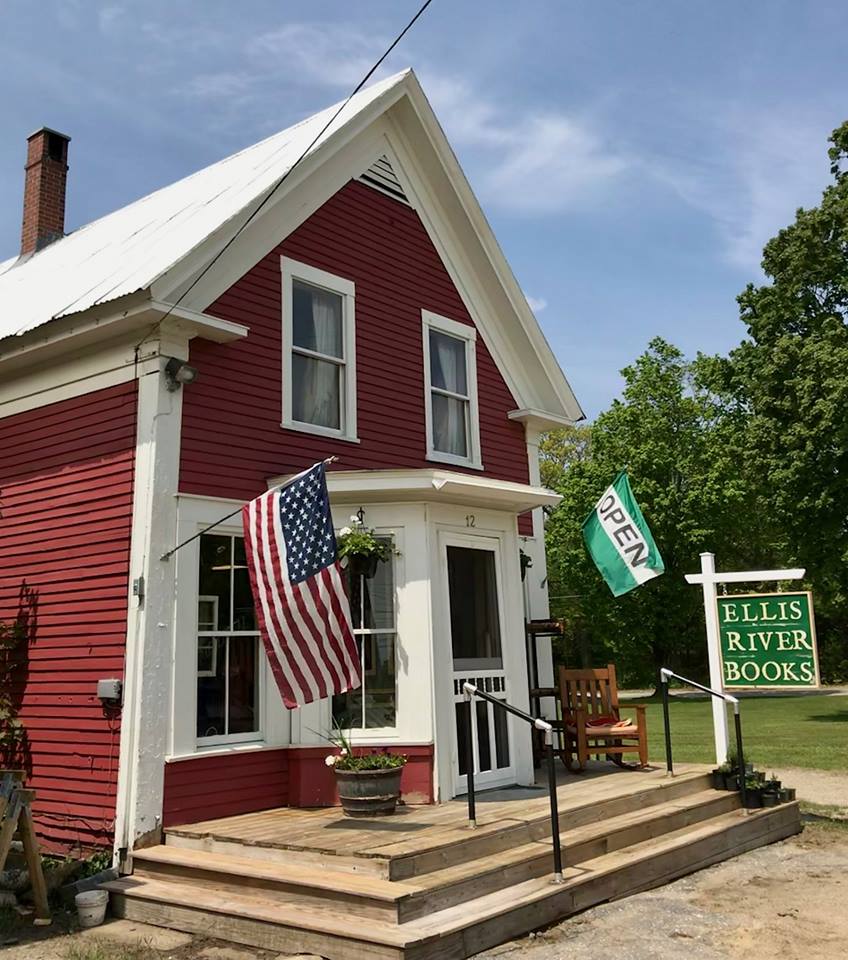 Ellis River Books in Andover, Maine, has moved to a new space on Andover's main street to help bring in more shoppers, including hikers on the nearby Appalachian Trail, the Sun Journal reported. Along with books, cards, art and jewelry, customers can now pick up trail food, shoelaces, duct tape and a variety of other hiking supplies.
Ellis River Books in Andover, Maine, has moved to a new space on Andover's main street to help bring in more shoppers, including hikers on the nearby Appalachian Trail, the Sun Journal reported. Along with books, cards, art and jewelry, customers can now pick up trail food, shoelaces, duct tape and a variety of other hiking supplies.










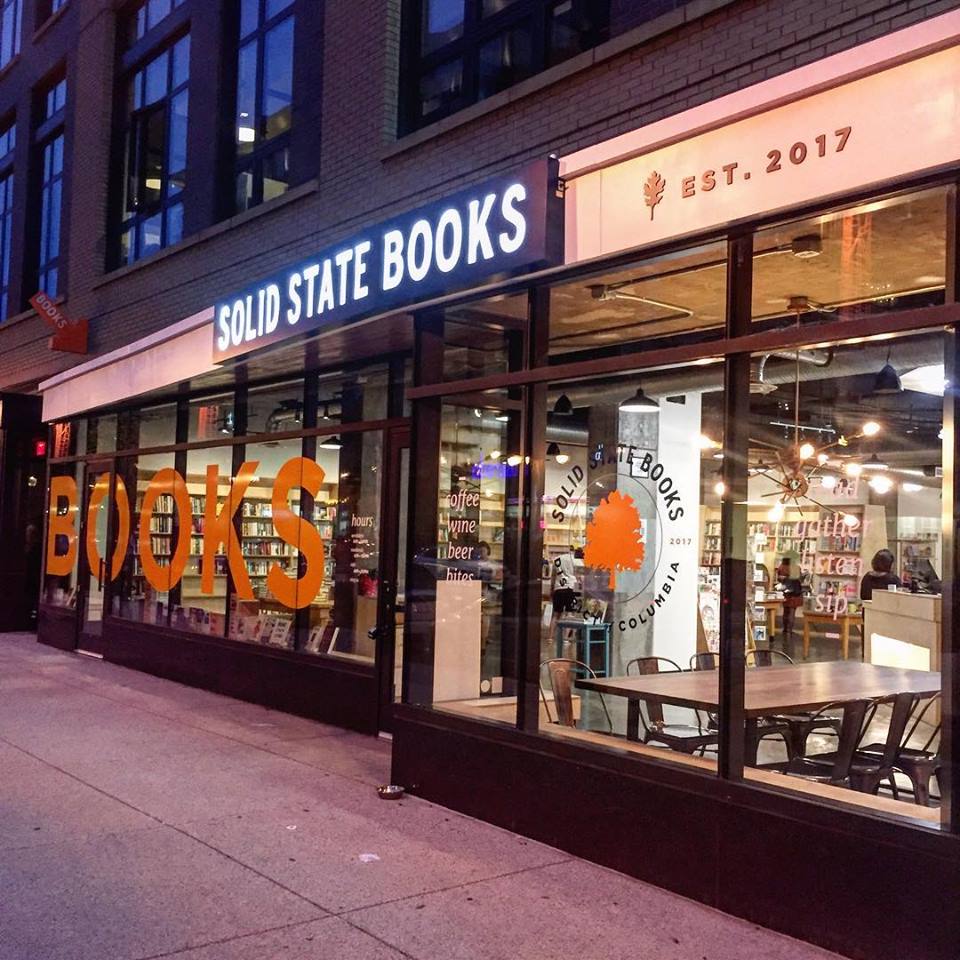 Solid State Books
Solid State Books

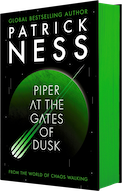
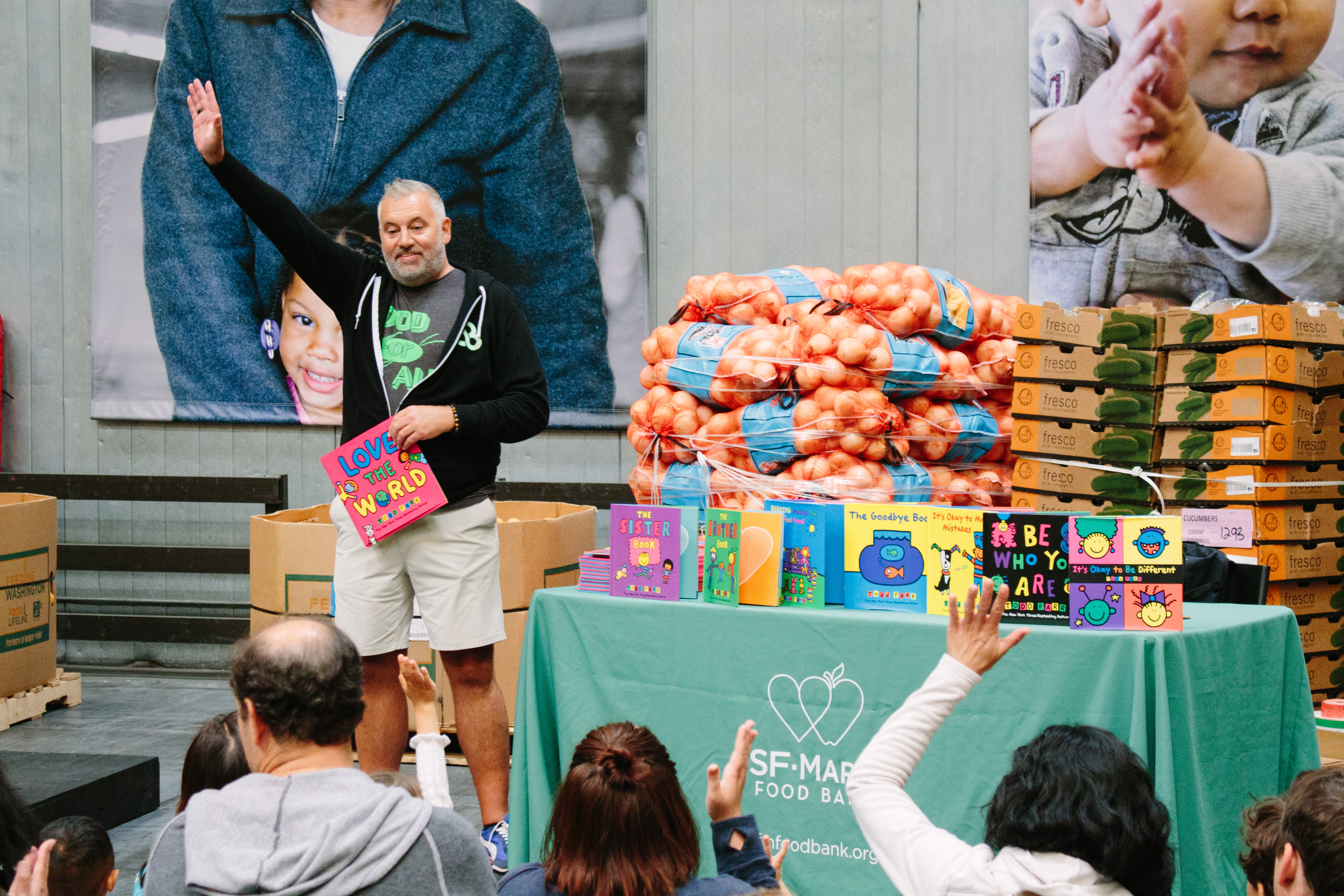 Last weekend, children's book author Todd Parr lent a hand at the
Last weekend, children's book author Todd Parr lent a hand at the 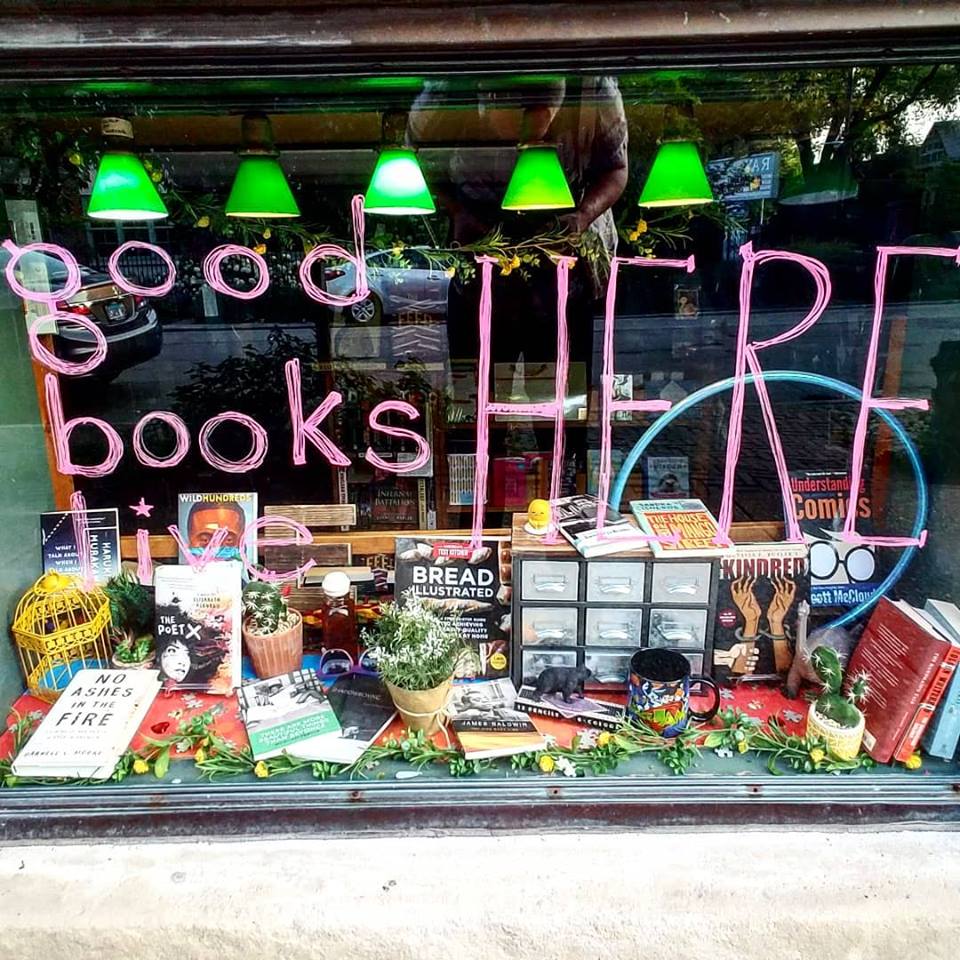 Posted Wednesday on Facebook by 57th Street Books, Chicago, Ill.: "We are very excited to unveil
Posted Wednesday on Facebook by 57th Street Books, Chicago, Ill.: "We are very excited to unveil 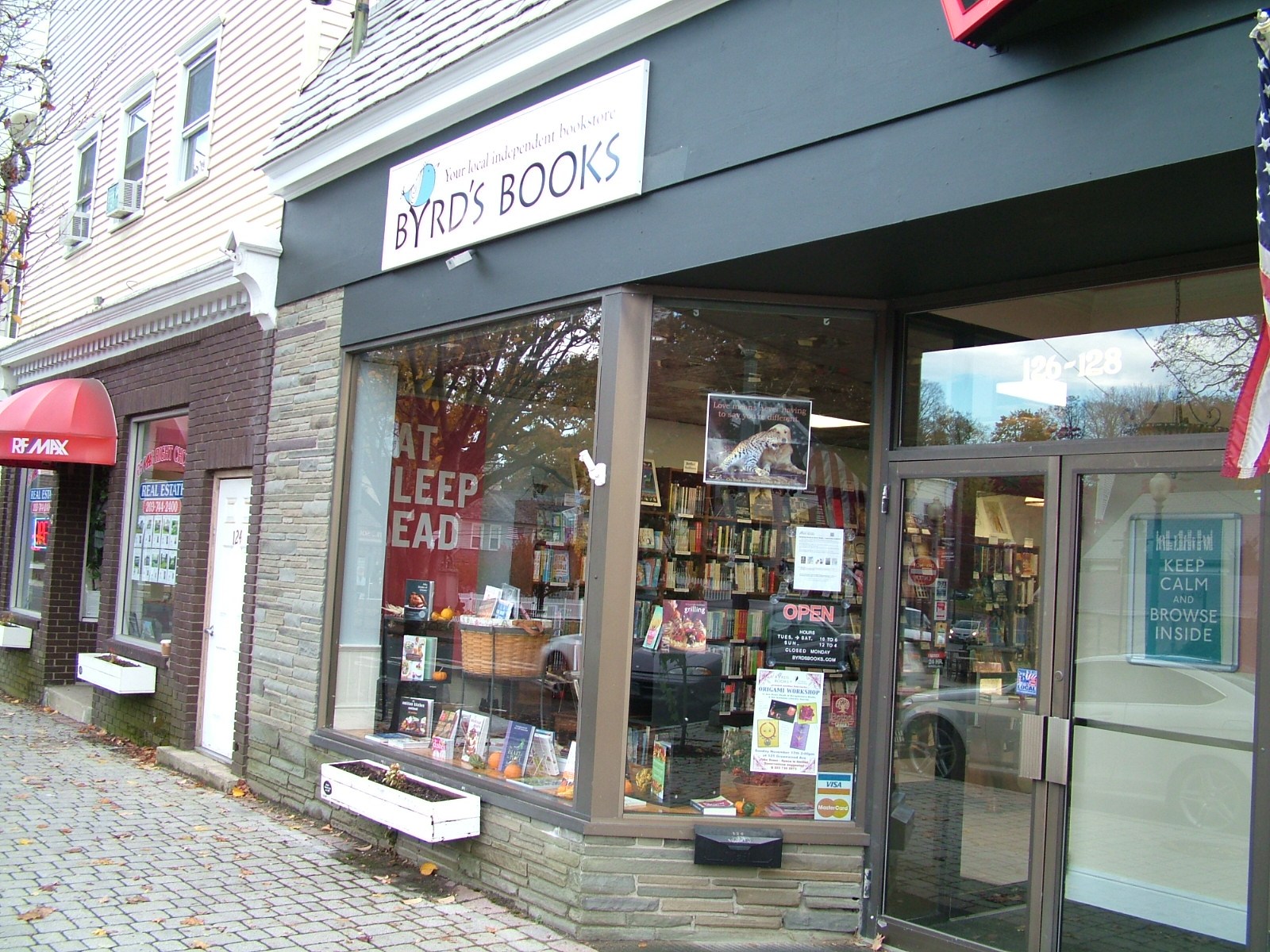 Alice Hutchinson, owner of
Alice Hutchinson, owner of  Paradox
Paradox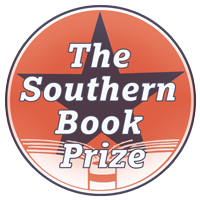 On Independence Day, winners were unveiled for the Southern Independent Booksellers Alliance 2018
On Independence Day, winners were unveiled for the Southern Independent Booksellers Alliance 2018 
 Book you're an evangelist for:
Book you're an evangelist for: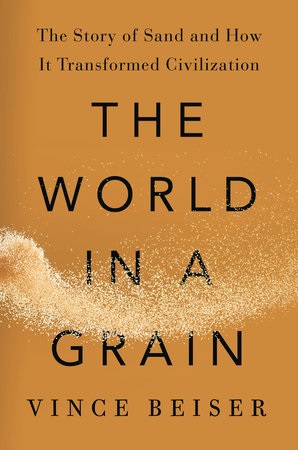 Like Mark Kurlansky's single-focus books about cod and salt, investigative journalist Vince Beiser's first book is a rich study of one of the world's most abundant natural resources: sand. With a balance of statistics, science, history, on-the-scene reporting and some healthy environmental skepticism, The World in a Grain highlights the ways this ubiquitous global commodity has been essential to human development and advancement.
Like Mark Kurlansky's single-focus books about cod and salt, investigative journalist Vince Beiser's first book is a rich study of one of the world's most abundant natural resources: sand. With a balance of statistics, science, history, on-the-scene reporting and some healthy environmental skepticism, The World in a Grain highlights the ways this ubiquitous global commodity has been essential to human development and advancement.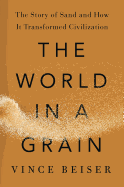
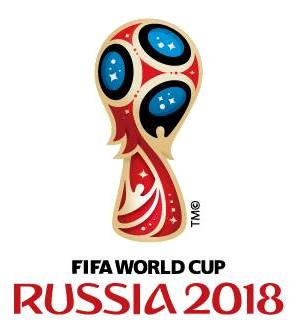 "
"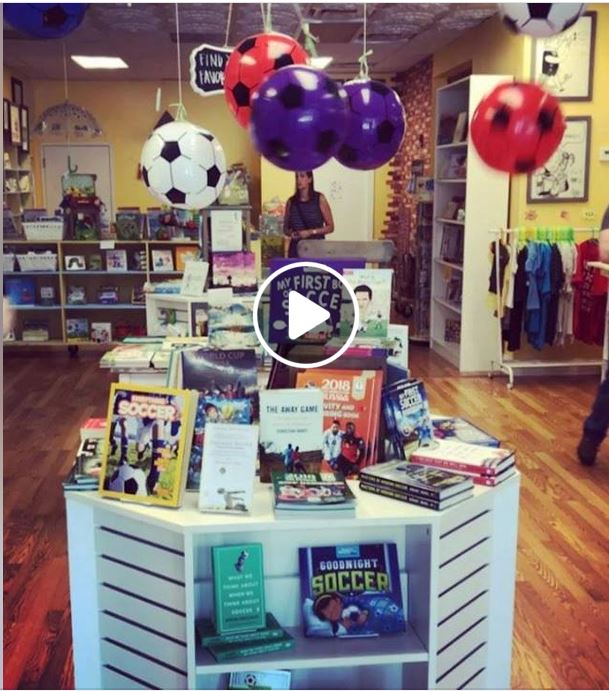
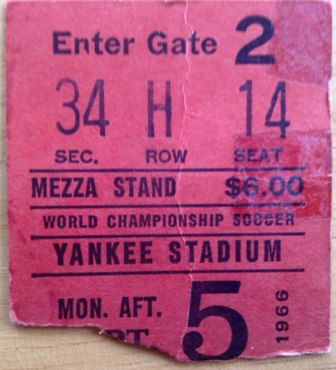 Even if the American men's team had qualified, however, I'd still be rooting for England because of a tradition I can trace directly back to 1966 for three key reasons: I was playing soccer every day; England won its lone World Cup championship; and I experienced a once-in-a-lifetime (or my lifetime, at least) event, the memories of which I can still conjure up from an old, talismanic ticket stub, faded red, with a few words and numbers printed on it:
Even if the American men's team had qualified, however, I'd still be rooting for England because of a tradition I can trace directly back to 1966 for three key reasons: I was playing soccer every day; England won its lone World Cup championship; and I experienced a once-in-a-lifetime (or my lifetime, at least) event, the memories of which I can still conjure up from an old, talismanic ticket stub, faded red, with a few words and numbers printed on it: